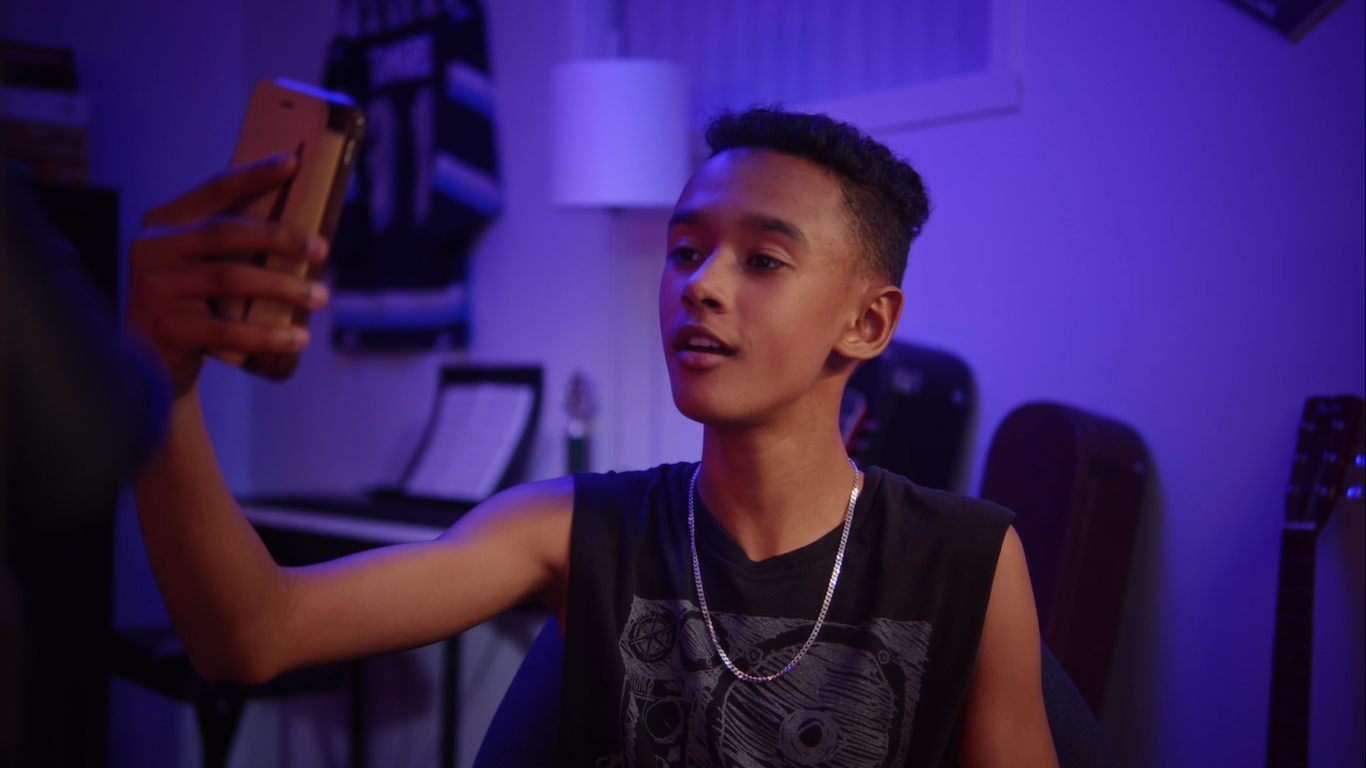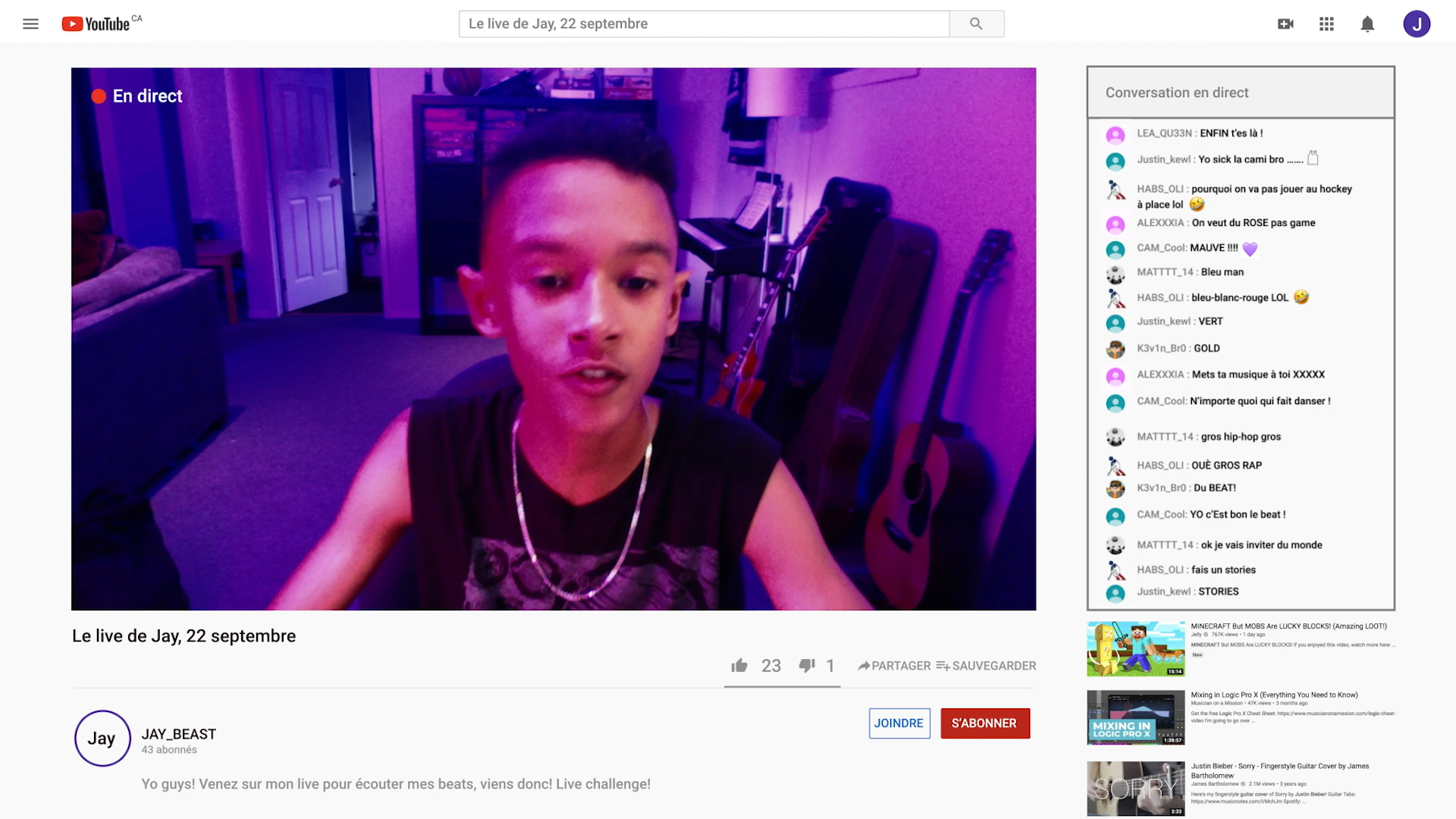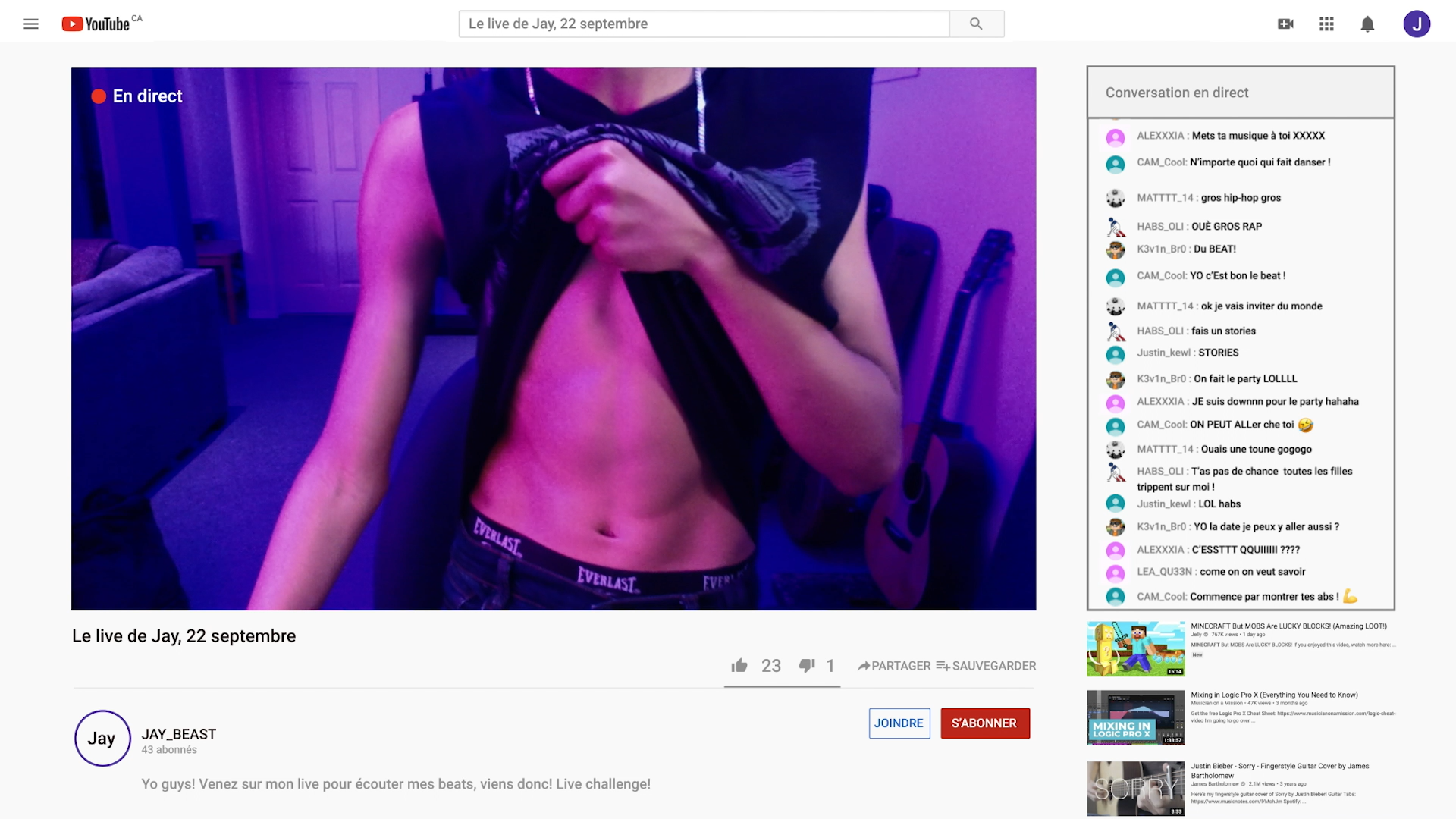This video and these parent-teen discussion guides are designed to help you talk with your adolescent about their technology habits and about preventing online sexual violence.



This video and these parent-teen discussion guides are designed to help you talk with your adolescent about their technology habits and about preventing online sexual violence.



Jay starts a live video and invites his viewers to watch it. At the same time, he films himself and posts the video on another social network to attract more viewers. He says he’ll carry off challenges based on how many likes he gets. First, with 30 likes, he’ll play one of the songs he’s composed; at 50 likes he’ll reveal his crush; at 75 likes he’ll go out with his crush; at 100 likes he’ll take off his shirt, and so on. A person in the chat asks him to show off his abs, which he does. He invites his viewers to set new challenges for him for more likes, and exclaims “nothing’s gonna stop me!”




– YouTube
– Twitch
– Tik Tok


– Validation and the feeling of being important.
– The feeling of being loved, admired and accepted.
– A feeling of popularity, of being part of a group.
– Encouragement that boosts their spirits.
– Self-confidence.
– In relation to the appeal of popularity and likes:
– To get noticed, you might be convinced to do things you wouldn’t necessarily do offline.
– The fleeting and relaxed nature of live videos could lead you to do things or say things without thinking.
– People watching could take screenshots.
– You might involuntarily be giving out personal information to the people watching (based on things that show in the background or things you say).

– Talk about it with a trusted adult.
– Report the person in the app.
– Say you’re not okay with it.
– Block the person.
– There are lots of online challenges, and new ones regularly become popular.
– Many challenges are creative and fun, but some involve serious health or safety risks (e.g.: making someone fall, filling your mouth with something, etc.).
– You might feel obliged to take part if your friends are doing it.
-Some challenges encourage people to do things that are illegal.
As a parent, you’re a major player in your teenager’s education, particularly when it comes to sexuality. You act as a model by conveying your values and sharing everyday life with them. By talking about these topics with your teen, you’re building a trusting relationship and a climate of openness when it comes to sexuality, which helps protect them from sexual violence.


Taking the time to talk with your teenager about subjects that concern them is an effective way to position yourself as a trusted adult they can turn to in case of distress or other need.
Do you have questions, an emergency situation, or just need to talk?
La Ligne Parent is a 24/7 professional help line that’s free for parents: 1 800 361-5085 (in French).
When risks related to technology use are brought up, many teenagers believe that this phenomenon does not apply to them. This article details how you can help improve your teen’s safety skills, specifically by bringing them to recognize manipulation tactics
Getting teens to stop playing in their online world is a source of conflict within many families. Here's a few tips to avoid conflicts.
Video games are popular among young people. Not only do they spend hours playing, many teens watch videos of their favourite players on platforms such as Twitch or YouTube.